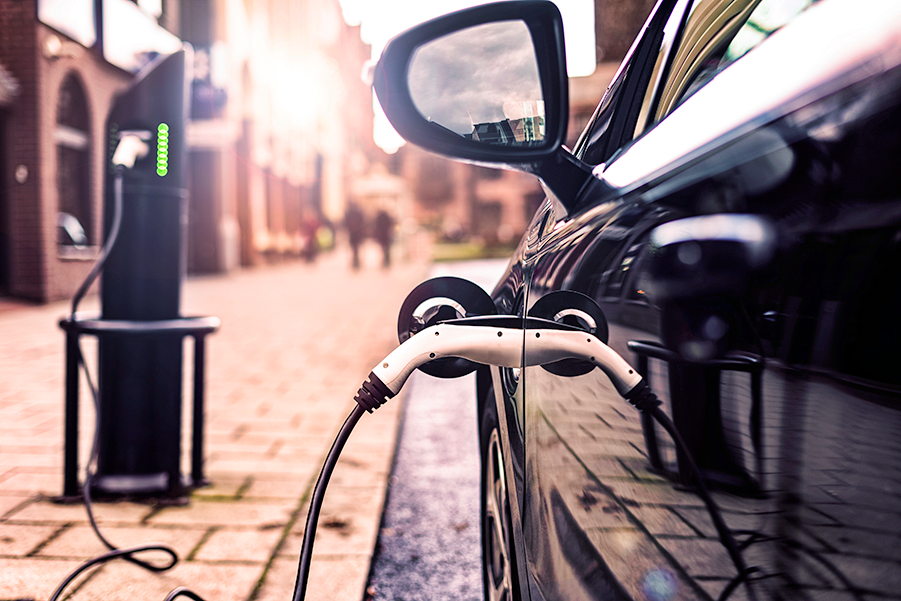
By Dr Nana Osei Bonsu, Research Fellow
Lloyds Banking Group Centre for Responsible Business, University of Birmingham
Electric vehicles (EVs) have finally come of age. With a 43% rise in global sales last year, analysts forecast 2021 as being the tipping point for the mass adoption of EVs. While in the UK, the government has announced that sales of petrol and diesel vehicles will end by 2030 as part of its Ten Point Plan for a Green Industrial Revolution.
But significant barriers remain. A recent study revealed that a lack of consumer knowledge and incentives, patchy charging infrastructure, and anxieties about the distance EVs can travel on a single charge hinders a smooth, mass transition. One of the biggest obstacles, though, is affordability.
Recent figures from the Society of Motor Manufacturers and Traders (SMMT) show that UK registrations for EVs and ultra-low emission vehicles (ULEVs) in the first nine months of 2020 were up 127% compared to 2019. But more than half of EV owners are in the top 20% of earners, while those in the lowest two income brackets made up just 4%. In fact, one study reveals most EV owners in the UK are affluent, well-educated, middle-aged males living in urban households with two or more cars and the ability to charge at home.
Such disparity amongst EV ownership in the UK reflects the real injustice between rich versus poor when it comes to decarbonising the transport sector. Because low-income households also suffer the brunt of the ill-effects from air pollution caused by road transport, living in areas with much higher concentrations of nitrogen dioxide pollution on average than those in affluent neighbourhoods. Such air pollution was blamed for the death of nine-year-old Ella Kussi-Debrah, who lived by London’s busy South Circular Road, in a recent landmark ruling.
So what business models can make EVs more affordable for everyone? Developing cheaper EV lithium-ion batteries (LIBs) or a new, more efficient and inexpensive battery technology is one answer. Currently, LIBs make up to a third of the total cost of an EV. LIB prices have already decreased from $290/kWh in 2014 to $110/kWh in 2020. And the UK government has made over a billion pounds available to increase EV battery production in the UK and provide consumer grants to reduce the cost of EVs.
But the government could go further and revise the current tax benefits for ULEVs to offer income tax rebates at the point of sale for low-income households purchasing a ULEV. They could also encourage a subscription business model, so poorer consumers only pay for the vehicle’s cost without the battery, leasing the latter under warranty for eight years or 100,000 miles – such as BMW, Nissan and Tesla currently offer.
This subscription business model would have the added benefits of a circular economy, encouraging more recycling of LIBs’ raw materials or their repurposing. That’s because once LIBs degrade past 80% and become unsuitable for EV use, they can still have a ‘second life’ as grid energy storage in homes or other built infrastructure, helping the UK transition to more renewable energy sources and the government to meet another of its Green Industrial Revolution Plan objectives.
Furthermore, with the messy impacts of Brexit causing car plants to close and the pandemic blamed for UK car production slumping to its lowest level since 1984, government tax breaks for local auto manufacturers – like Jaguar Land Rover or new, EV start-ups – could be critical in encouraging the development of new, affordable ULEV models aimed specifically at the domestic UK market.
However it’s done, the government needs to make sure no one is left behind in its plans to shift everyone to zero-emission vehicles. If ULEVs remain unaffordable to so many, then even if petrol and diesel car sales are banned in 2030, millions will still be polluting the UK’s roads for decades afterwards. Authorities and broader society have a moral duty to accelerate more equitable EV ownership among low-income households to help address the socio-economic and environmental injustices of road traffic pollution and prevent the deaths of thousands of people like Ella every year.
- More about Dr Nana Osei Bonsu at the University of Birmingham
- More about the Lloyds Banking Group Centre for Responsible Business
- Back to Business School Blog
The views and opinions expressed in this article are those of the author and do not necessarily reflect the official policy or position of the University of Birmingham.
